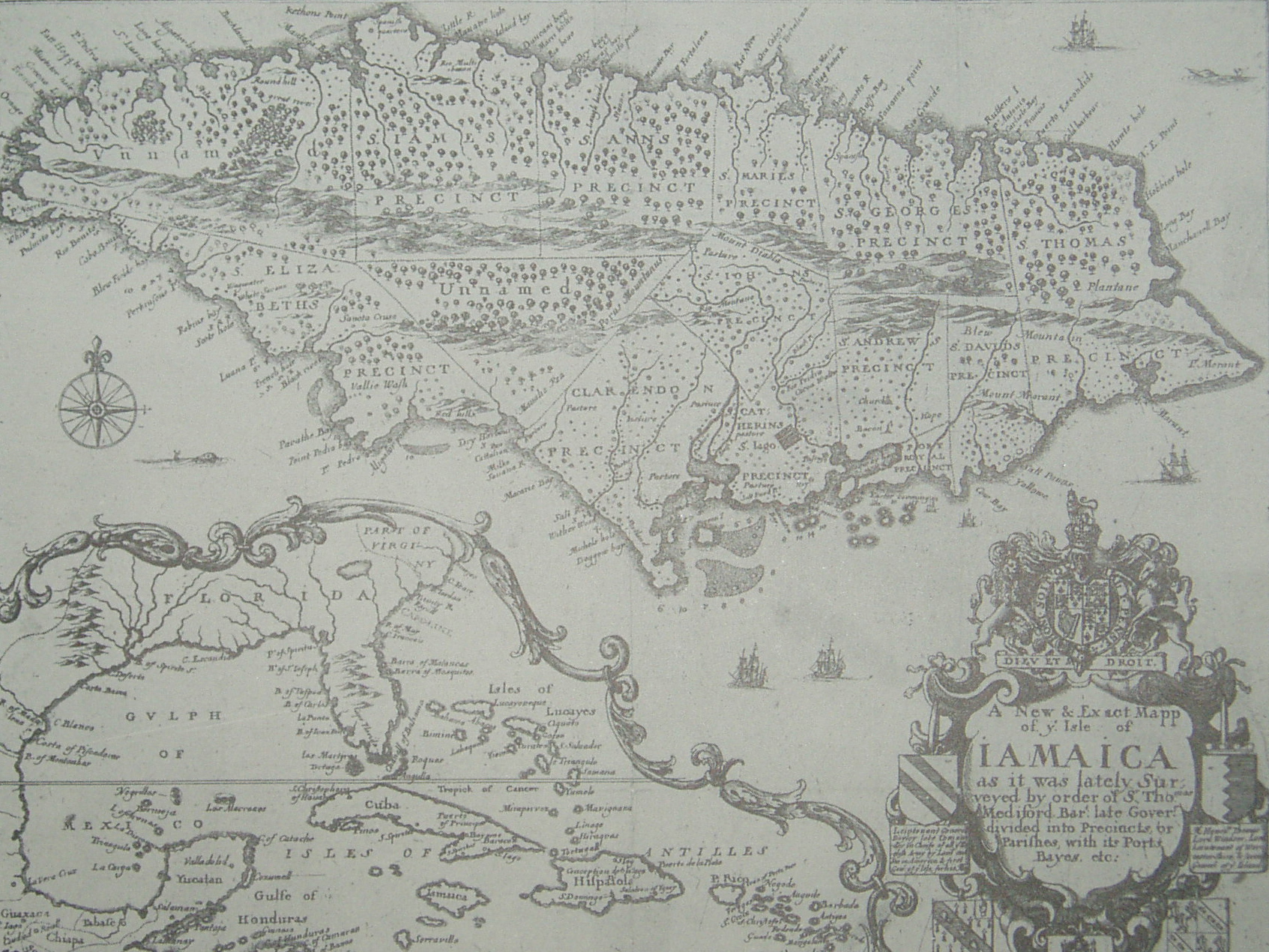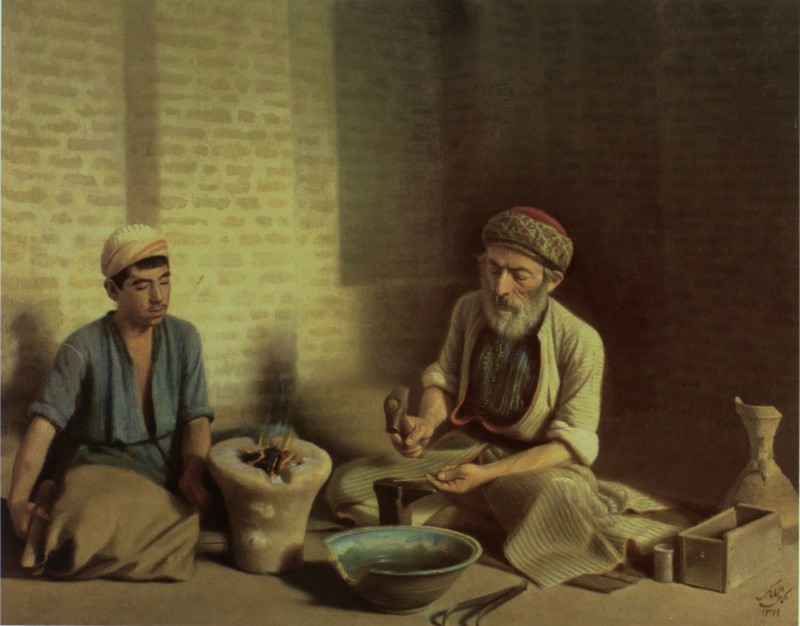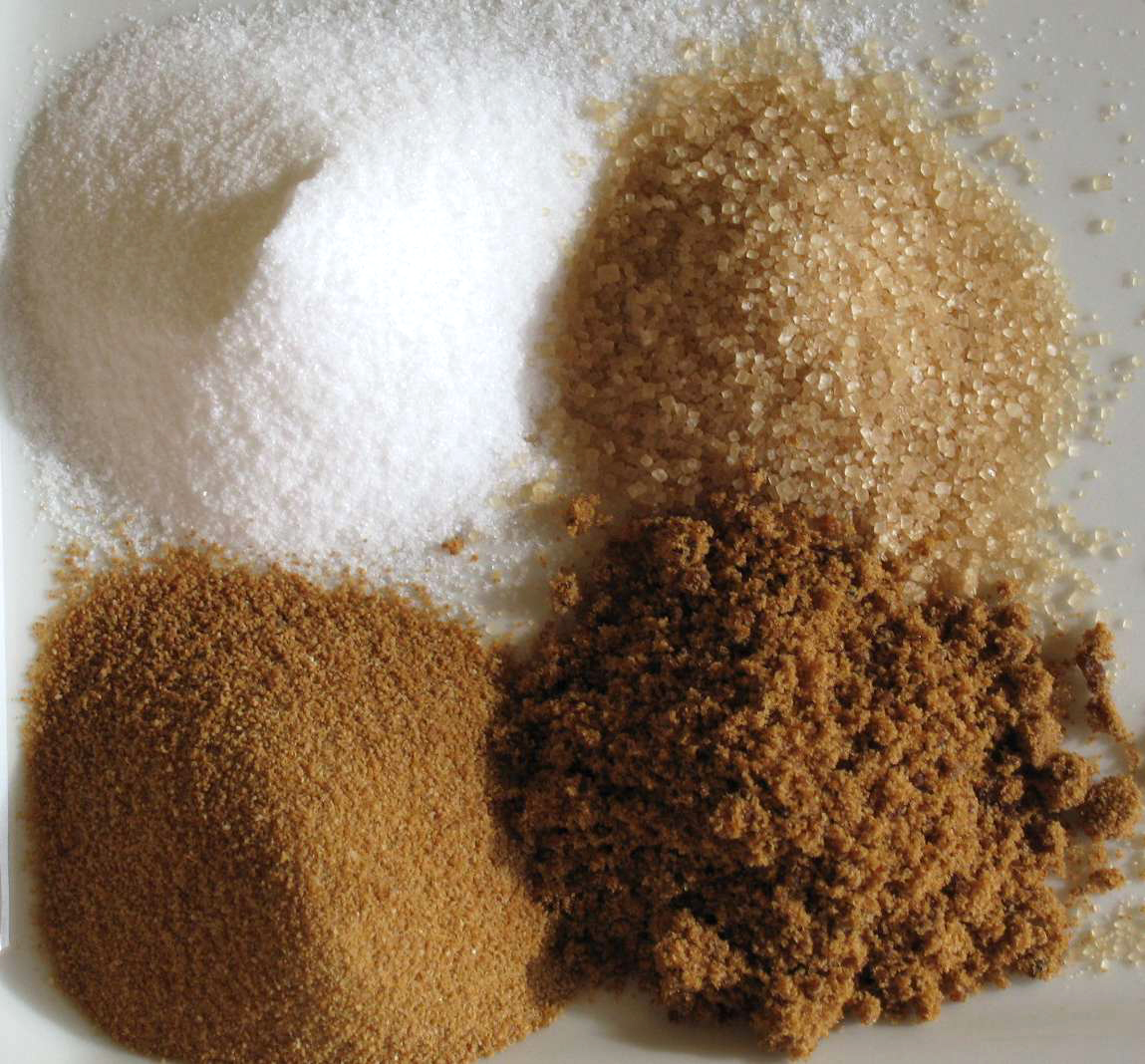|
Hanover, Jamaica
Hanover () is a Parishes of Jamaica, parish located on the northwestern tip of the island of Jamaica. It is a part of the county of Cornwall, Jamaica, Cornwall, bordered by Saint James, Jamaica, St. James in the east and Westmoreland Parish, Westmoreland in the south. With the exception of Kingston Parish, Kingston, it is the smallest parish on the island. Hanover is the birth parish of Alexander Bustamante, labour leader, first head of government of Jamaica under universal suffrage, and one of seven Order of National Hero (Jamaica), Jamaican National Heroes. Its capital is Lucea, Jamaica, Lucea. History The region was initially under Spanish control as a colony until 1655, when Spain relinquished control to the English. Over time, parishes were formed to govern the island. The parish would go unnamed for many decades even though many of the towns existed. Hanover was established on 12 November 1723. It is the second smallest parish in Jamaica and was established from parts of ... [...More Info...] [...Related Items...] OR: [Wikipedia] [Google] [Baidu] |
Parishes Of Jamaica
The parishes of Jamaica are the main units of local government in Jamaica. They were created following the English Invasion of Jamaica, settlement of Jamaica in 1655. This administrative structure for the Colony of Jamaica developed slowly. However, since 1 May 1867, Jamaica has been divided into the current fourteen Parish (administrative division), parishes. These were retained after Independence of Jamaica, independence in 1962. They are grouped into three historic County, counties, which no longer have any administrative relevance. Every parish has a coast; none are landlocked. List History Early history Following the English conquest of Jamaica the first phase of colonisation was carried out by the Army, with a system of Regimental plantations. These were drawn up on the southern flat lands, with the Regimental commanders charged with ordering their men to plant provisions. Certain key figures such as Luke Stokes (1656) and Thomas Modyford (1664) [...More Info...] [...Related Items...] OR: [Wikipedia] [Google] [Baidu] |
House Of Hanover
The House of Hanover ( ) is a European royal house with roots tracing back to the 17th century. Its members, known as Hanoverians, ruled Hanover, Great Britain, Ireland, and the British Empire at various times during the 17th to 20th centuries. Originating as a cadet branch of the House of Welf (also "Guelf" or "Guelph") in 1635, also known then as the House of Brunswick-Lüneburg, the Hanoverians ascended to prominence with Hanover's elevation to an Electorate of the Holy Roman Empire in 1692. In 1714 George I, prince-elector of Hanover and a descendant of King James VI and I, assumed the throne of Great Britain and Ireland, marking the beginning of Hanoverian rule over the British Empire. At the end of this line, Queen Victoria's death in 1901, the throne of the United Kingdom passed to her eldest son Edward VII, a member of the House of Saxe-Coburg and Gotha, through his father Albert, Prince Consort. The last reigning members of the House of Hanover lost the Duchy ... [...More Info...] [...Related Items...] OR: [Wikipedia] [Google] [Baidu] |
View From Fort Charlotte
Acornsoft was the software arm of Acorn Computers, and a major publisher of software for the BBC Micro and Acorn Electron. As well as games, it also produced a large number of educational titles, extra computer languages and business and utility packages – these included word processor ''VIEW'' and the spreadsheet '' ViewSheet'' supplied on ROM and cartridge for the BBC Micro/Acorn Electron and included as standard in the BBC Master and Acorn Business Computer. History Acornsoft was formed in late 1980 by Acorn Computers directors Hermann Hauser and Chris Curry, and David Johnson-Davies, author of the first game for a UK personal computer and of the official Acorn Atom manual "Atomic Theory and Practice". David Johnson-Davies was managing director and in early 1981 was joined by Tim Dobson, Programmer and Chris Jordan, Publications Editor. While some of their games were clones or remakes of popular arcade games (e.g. ''Hopper'' is a clone of Sega's ''Frogger'', '' Snapper ... [...More Info...] [...Related Items...] OR: [Wikipedia] [Google] [Baidu] |
Free Port
A free-trade zone (FTZ) is a class of special economic zone. It is a geographic area where goods may be imported, stored, handled, manufactured, or reconfigured and re-exported under specific customs regulation and generally not subject to customs duty. Free trade zones are generally organized around major seaports, international airports, and national frontiers—areas with many geographic advantages for trade. Definition The World Bank defines free trade zones as "small, fenced-in, duty-free areas, offering warehousing, storage, and distribution facilities for trade, transshipment, and re-export operations". Free-trade zones can also be defined as labor-intensive manufacturing centers that involve the import of raw materials or components and the export of factory products, but this is a dated definition as more and more free-trade zones focus on service industries such as software, back-office operations, research, and financial services. Synonyms Free-trade zones ar ... [...More Info...] [...Related Items...] OR: [Wikipedia] [Google] [Baidu] |
Goldsmith
A goldsmith is a Metalworking, metalworker who specializes in working with gold and other precious metals. Modern goldsmiths mainly specialize in jewelry-making but historically, they have also made cutlery, silverware, platter (dishware), platters, goblets, decorative and serviceable utensils, and ceremonial or religious items. Goldsmiths must be skilled in forming metal through file (tool), filing, brazing, soldering, sawing, forging, Casting (metalworking), casting, and polishing. The trade has very often included jewelry-making skills, as well as the very similar skills of the silversmith. Traditionally, these skills had been passed along through apprenticeships; more recently jewelry arts schools, specializing in teaching goldsmithing and a multitude of skills falling under the jewelry arts umbrella, are available. Many universities and junior colleges also offer goldsmithing, silversmithing, and metal arts fabrication as a part of their fine arts curriculum. Gold Compar ... [...More Info...] [...Related Items...] OR: [Wikipedia] [Google] [Baidu] |
Shoemaking
Shoemaking is the process of making footwear. Originally, shoes were made one at a time by hand, often by groups of shoemakers, or '' cordwainers'' (sometimes misidentified as cobblers, who repair shoes rather than make them). In the 18th century, dozens or even hundreds of masters, journeymen, and apprentices (both men and women) would work together in a shop, dividing the work into individual tasks. A customer could come into a shop, be individually measured, and return to pick up their new shoes in as little as a day. Everyone needed shoes, and the median price for a pair was about one day’s wages for an average journeyman. The shoemaking trade flourished in the eighteenth and early nineteenth centuries but began to be affected by industrialization in the later nineteenth century. Traditional handicraft shoemaking has now been largely superseded in volume of shoes produced by industrial mass production of footwear, but not necessarily in quality, attention to detail, or ... [...More Info...] [...Related Items...] OR: [Wikipedia] [Google] [Baidu] |
Haberdashery
__NOTOC__ In British English, a haberdasher is a business or person who sells small articles for sewing, dressmaking and knitting, such as buttons, ribbons, and zippers; in the United States, the term refers instead to a men's clothing store that sells suits, shirts, neckties, men's dress shoes, and other items. Sewing supplies and accessories The sewing articles are called ''haberdashery'' in British English. The corresponding term is ''notions'' in American English, where ''haberdashery'' is the name for the shop itself, though it is largely an archaism now. In Britain, haberdashery shops, or haberdashers, were a mainstay of high street retail until recent decades, but are now uncommon, due to the decline in home dressmaking, knitting and other textile skills and hobbies, and the rise of internet shopping. They were very often drapers as well, the term for sellers of cloth. Etymology and usage The word ''haberdasher'' appears in Chaucer's ''Canterbury Tales''. It is d ... [...More Info...] [...Related Items...] OR: [Wikipedia] [Google] [Baidu] |
Tradesman
A tradesperson or tradesman/tradeswoman is a skilled worker that specialises in a particular trade. Tradespeople (tradesmen/women) usually gain their skills through work experience, on-the-job training, an apprenticeship program or formal education. As opposed to a master craftsman or an artisan, a tradesperson (tradesman/tradeswoman) is not necessarily restricted to manual work. History In Victorian England, The terms "skilled worker," "craftsman," "artisan," and "tradesman" were used in senses that overlap. All describe people with specialized training in the skills needed for a particular kind of work. Some of them produced goods that they sold from their own premises (e.g. bootmakers, saddlers, hatmakers, jewelers, glassblowers); others (e.g. typesetters, bookbinders, wheelwrights) were employed to do one part of the production in a business that required a variety of skilled workers. Still others were factory hands who had become experts in some complex part of th ... [...More Info...] [...Related Items...] OR: [Wikipedia] [Google] [Baidu] |
Merchants
A merchant is a person who trades in goods produced by other people, especially one who trades with foreign countries. Merchants have been known for as long as humans have engaged in trade and commerce. Merchants and merchant networks operated in ancient Babylonia, Assyria, China, Egypt, Greece, India, Persia, Phoenicia and Rome. During the European medieval period, a rapid expansion in trade and commerce led to the rise of a wealthy and powerful merchant class. The European Age of Discovery opened up new trading routes and gave European consumers access to a much broader range of goods. By the 18th century, a new type of manufacturer-merchant had started to emerge and modern business practices were becoming evident. The status of the merchant has varied during different periods of history and among different societies. In modern times, the term ''merchant'' has occasionally been used to refer to a businessperson or someone undertaking activities (commercial or industrial) for t ... [...More Info...] [...Related Items...] OR: [Wikipedia] [Google] [Baidu] |
Jews
Jews (, , ), or the Jewish people, are an ethnoreligious group and nation, originating from the Israelites of History of ancient Israel and Judah, ancient Israel and Judah. They also traditionally adhere to Judaism. Jewish ethnicity, religion, and community are highly interrelated, as Judaism is their ethnic religion, though it is not practiced by all ethnic Jews. Despite this, religious Jews regard Gerim, converts to Judaism as members of the Jewish nation, pursuant to the Conversion to Judaism, long-standing conversion process. The Israelites emerged from the pre-existing Canaanite peoples to establish Kingdom of Israel (Samaria), Israel and Kingdom of Judah, Judah in the Southern Levant during the Iron Age.John Day (Old Testament scholar), John Day (2005), ''In Search of Pre-Exilic Israel'', Bloomsbury Publishing, pp. 47.5 [48] 'In this sense, the emergence of ancient Israel is viewed not as the cause of the demise of Canaanite culture but as its upshot'. Originally, J ... [...More Info...] [...Related Items...] OR: [Wikipedia] [Google] [Baidu] |
Sugar
Sugar is the generic name for sweet-tasting, soluble carbohydrates, many of which are used in food. Simple sugars, also called monosaccharides, include glucose Glucose is a sugar with the Chemical formula#Molecular formula, molecular formula , which is often abbreviated as Glc. It is overall the most abundant monosaccharide, a subcategory of carbohydrates. It is mainly made by plants and most algae d ..., fructose, and galactose. Compound sugars, also called disaccharides or double sugars, are molecules made of two bonded monosaccharides; common examples are sucrose (glucose + fructose), lactose (glucose + galactose), and maltose (two molecules of glucose). White sugar is almost pure sucrose. In the body, compound sugars are hydrolysed into simple sugars. Longer chains of monosaccharides (>2) are not regarded as sugars and are called oligosaccharides or polysaccharides. Starch is a glucose polymer found in plants, the most abundant source of energy in human foo ... [...More Info...] [...Related Items...] OR: [Wikipedia] [Google] [Baidu] |
Montego Bay
Montego Bay () is the capital of the Parishes of Jamaica, parish of Saint James Parish, Jamaica, St. James in Jamaica. The city is the fourth most populous urban area in the country, after Kingston, Jamaica, Kingston, Spanish Town, and Portmore, Jamaica, Portmore, all of which form the Greater Kingston Metropolitan Area, home to over half a million people. As a result, Montego Bay is the second-largest anglophone city in the Caribbean, after Kingston. Montego Bay is a popular tourist destination featuring duty-free shopping, a cruise line terminal and several beaches and resorts. The city is served by the Donald Sangster International Airport, the busiest airport in the Anglophone Caribbean, which is located within the official city limits. The city is enclosed in a watershed, drained by several rivers such as the Montego River. Montego Bay is referred to as "The Second City", "MoBay" or "Bay". Toponymy Christopher Columbus named the bay of Montego, ''Golfo de Buen Tiempo'' ("F ... [...More Info...] [...Related Items...] OR: [Wikipedia] [Google] [Baidu] |






